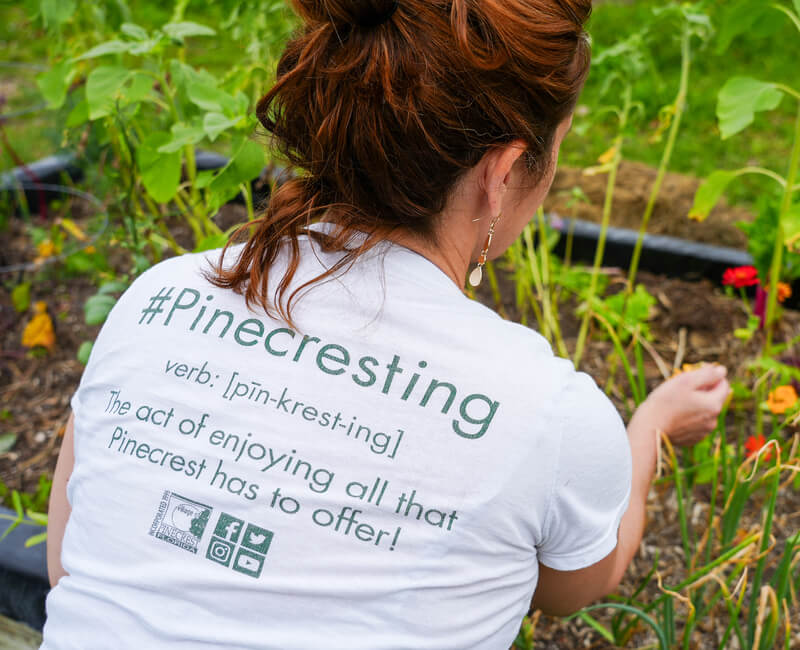
Village of Pinecrest, FL
Miami-Dade County's First Free Composting Program
Population 10,000 - 49,999
Situated in Miami-Dade County, Florida, an area known for its sandy beaches, cultural attractions, and unique wildlife, lies the Village of Pinecrest. In recent years, significant environmental challenges have drastically impacted its community.
Enviromental Challenges
The landfill crisis. Overflowing landfills are a significant problem facing Miami-Dade County. Its two landfills are projected to reach capacity by 2029, and excessive food waste accounts for a large portion of landfill volume, also increasing methane emissions into the atmosphere.
Water pollution. Pinecrest’s urban waterways as well as the neighboring Biscayne Bay- an aquatic preserve for marine life- have sustained significant changes due to increased pollution and the spread of invasive species. Not only is native aquatic life at risk, but water quality is also declining.
Soil degradation. An increase in nutrient runoff and pollution has led to severe soil degradation in the Everglades. This directly affects Pinecrest as it is susceptible to extreme weather conditions that can be extremely damaging, such as flooding.
Innovative Projects
The composting program. The pressing environmental challenges required swift, innovative action from leadership. Several projects were launched by Pinecrest, including the first free composting program in Miami-Dade County, spearheaded by Councilmember Shannon del Prado. The program established a user-friendly network, allowing residents to conveniently drop off food scraps at designated sites throughout the Village. Additionally, Pinecrest distributes complimentary composting bins at its weekly farmers market every Sunday, making sustainable living more accessible to residents. Key outcomes from the composting program include the diversion of organic waste from landfills, the promotion of soil health, and the reduction of carbon emissions.
Everglades Earth Cycle Project. In collaboration the Miccosukee Tribe of Indians of Florida, Dr. Lanette Sobel, Founder of Fertile Earth Worm Farm, and the Love the Everglades Movement, the Everglades Earth Cycle converts organic waste into nutrient-rich compost, strengthening the soil in the Everglades: one of the world’s most vital carbon sinks.
Floating Flower Islands Initiative. Building on success and community support, Pinecrest introduced a third sustainability project. This distributed 500-square-foot floating plant platforms across urban waterways, improving water quality, mitigating the growth of invasive species, and enhancing aesthetic appeal through the installation of vibrant flowers by the local organization Green Thumb Strategies.
Program Impact
Results. In just one year, the composting program successfully reduced greenhouse gas emissions and landfill contributions, diverting over 90,000 pounds of food waste from landfills. All three projects have helped restore the Everglades and promote climate resiliency.
Funding expansion. The composting program began with a local pilot budget and the support of Miami-Dade County, while grant funding from the United States Department of Agriculture (USDA) supported the launch of the Everglades Earth Cycle Project. This combined approach enabled project scaling and lessened the financial impact on taxpayers.
Community engagement. The participation of residents across the community is vital to the success of Pinecrest’s sustainability efforts. Grassroots support has made sustainability a community priority; it was a resident who approached Councilmember del Prado with the idea of a composting program.
Cross-collaborative partnership. The composting program spurred an interconnected environmental strategy, leveraging the work of local organizations through strategic partnerships.
Pinecrest's sustainability efforts demonstrate the effectiveness of proactive and responsive local government leadership. The municipality is recognized for its sustainable practices and serves as an example of how local governments can positively address environmental issues.
